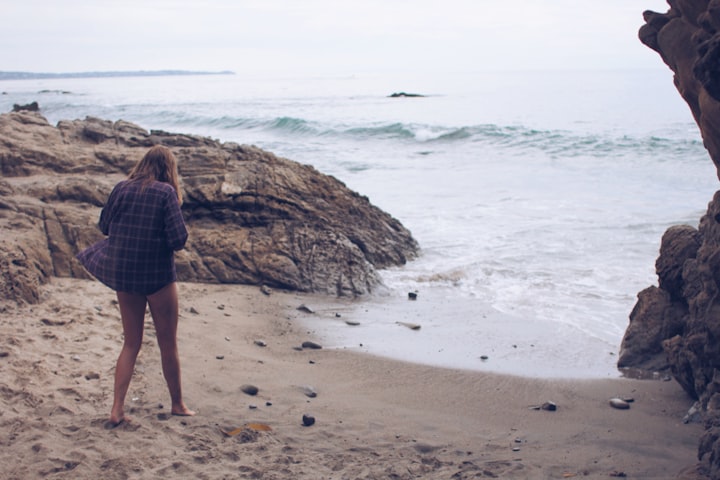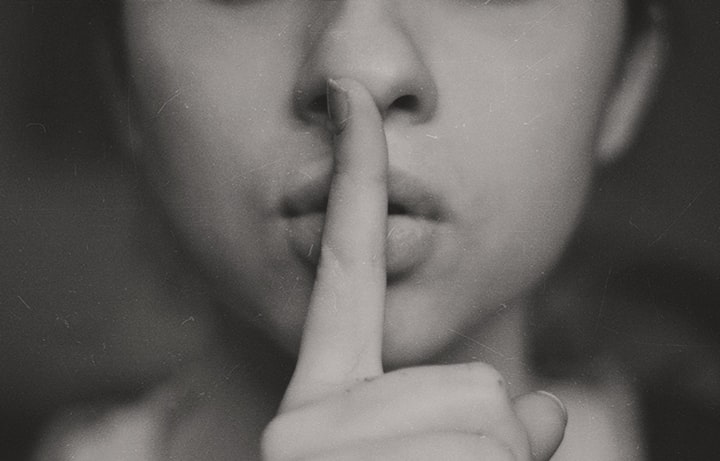In Defence of Therapy and Becoming Vulnerable
Why opening up leads to strength and healing

If I had a dollar for every time I heard someone say they don't need therapy, I'd have about $12 and then I'd have to lose some of that in commission, exchanging it for pound sterling.
I'm not suggesting everyone needs therapy, but I am suggesting those who need it most are often the ones who entertain the idea the least.
I was there, back in 2005, sitting by the pool in Croatia, drinking cold beers and explaining to my friends why therapy was bullshit. It took me another 9 years before I picked up the phone to get help.
Want to hear something obvious? To deal with our shit, we must first admit it exists. The impetus to seek a cure can only come after acknowledging there is a problem.
I've heard it said that first step into a therapist's office is the moment the healing begins. The hardest work is already done.
The human mind is a slippery sucker and things that should be self-evident often aren’t. We live in our blindspots because they're dark and cosy. We’re creatures hardwired to avoid pain, especially when it’s without clear reward. It’s mighty difficult to face any kind of struggle unless we get something at the end of it. We suffer at the gym because it makes us look good and feel healthier. We toil in our place of work because it gives us money, resources and in one way or another, power.
Yet when things have a much murkier correlation – such as tackling our emotional insecurity for an unspecified better future or dealing with loss under the promise of a vague sense of personal peace – we reject this path of suffering because it doesn’t seem worth it. The problem is too nebulous and the reward too obscure.
Being vulnerable and opening up to a paid professional for an intangible outcome is often too crappy a deal to accept. So we reject the struggle, deny the pain and just soldier on.
When I called up a therapist in 2014, I knew something was wrong, but I didn't know what. "I think I'm having a breakdown," I told him, but that's all I could say. Years of vague, unspecified emotional pain had made me pick up the phone, but I still felt fraudulent, like there was nothing wrong and I was wasting his time.
It didn't help that gritting teeth and just getting on with it is rewarded by society. Stoicism is seen as a strength. This is emphasised by the myths and tales we tell each other; films, books and songs of heroic characters that are physically and emotionally strong.
Thor isn’t scared. Atticus Finch isn’t afraid. Rocky isn’t weak. Frodo marches on. Jesus died a terrible death for other people. So we learn from these stories that we should be stronger, we hunker down and push on, because that’s what we’ve been taught is right.
But there’s no point putting on armour and battling through if the pain is inside rather than out. All that armour is going to do is keep that pain contained, buddy, bouncing around inside like a pinball. Before I started therapy, my thoughts had become self-referential, they were wound tight and circular, never-ending, the chatting mind, less chatting and more shouting.
Allowing myself to open up, in the right setting, with the right person was the only way to escape myself and begin to heal.
Dredging up trauma can be immensely painful and scary, looking for pain is akin to kicking up a hornet’s nest, it will bring with it its own troubles. Yet there is no other way for our self-sabotaging minds to pinpoint the problem. And once we do, we can begin to develop the emotional antibodies to beat it.
Self-examination will only get you so far, it is like trying to look at your own eyeballs; weird and difficult.
The quiet and courageous act of admitting that something is hurting is the first step to emotional freedom.
This is why every 12 step programme begins with a statement of vulnerability, a declaration of a grim truth that can no longer be ignored: I am an alcoholic. I am an addict. I am a victim of abuse. I need help. It’s the grandest truth we will ever have to declare because it begins a process of healing.
Everyone in life loves something, is scared of something and has lost something.
Everyone is human. Everyone is vulnerable. Embracing vulnerability is the first shot fired in the battle for happiness.
The fear of our pain is the only real power it has. It is what pushes and drives all other problems. The great news is that we can control that power, we can intervene and shine a light on the pain and deconstruct it. We can take the power back. It’s an ongoing process, a state of mind that requires work and diligence, but it sure beats wearing all that heavy armour.
There’s a theme in 'Conversations with God' by Neale Donald Walsh which says if we look at fear, it disappears. It disappears in the light, it does not stand up to scrutiny, it is a paper tiger.
Bullying thoughts, emotional pain, traumatic pasts and substance dependencies are all scared of the light. They all need to dwell in those dark times I blindspots to grow and appear unconquerable. If we deny the pain, we allow it to live on.
But denial is just an emotional workaround with an expiry date.
Denial of the pain rots us from the inside as we pour endless mental energy into building walls around it.
M Scott Peck’s bestselling book 'The Road Less Travelled' proposes that no healing can come from any method other than walking the uncommon path, the path of confronting and exposing our pain: the path of vulnerability.
So we are faced with a task. You are not alone. I am not alone. We all must face our pain if we want to be happy. If that process involves therapy, so be it. No one is an island. Therapy showed me that I'm not weird or inherently broken, and that I'm stronger than I believe, that my problems are only as big as I how much I avoid them.
The key to a better life is within you. Embrace vulnerability and start to love yourself once more. Allow yourself to be scared. The only way out is through, but on the other side of fear is the person you know you were meant to be.
About the Creator
Jamie Jackson
Between two skies and towards the night.






Comments
There are no comments for this story
Be the first to respond and start the conversation.